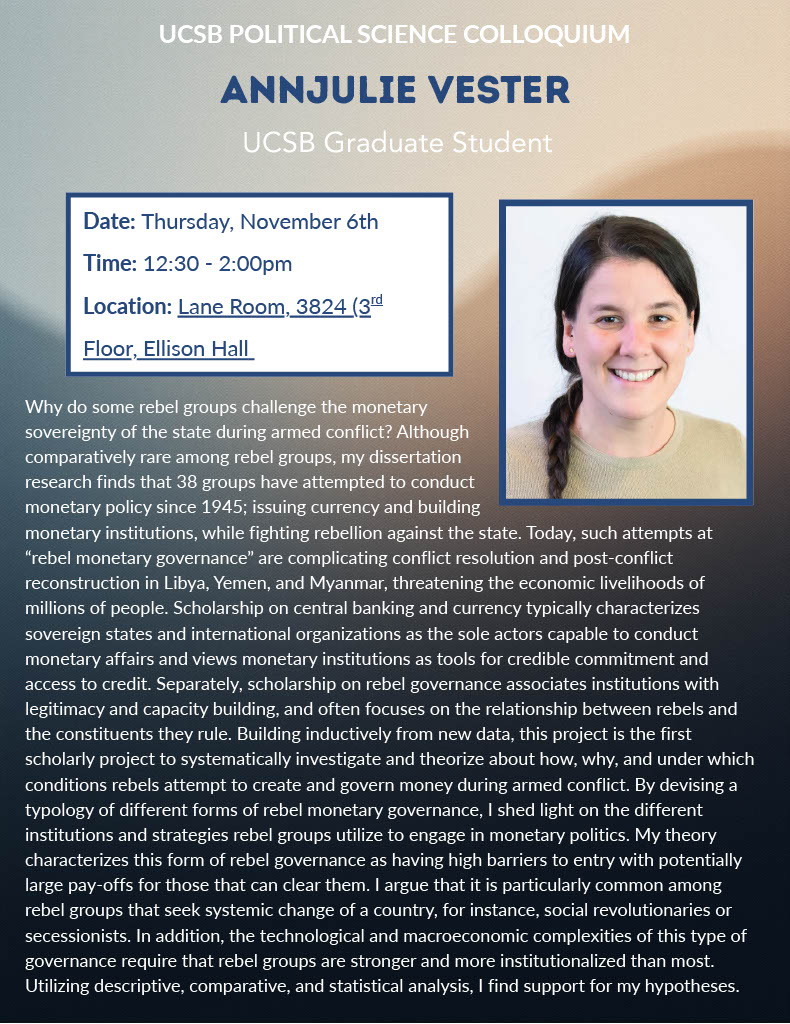
Annjulie Vester is a Ph.D. Candidate in the Department of Political Science at UC Santa Barbara studying the political economy of armed conflict. Specifically, her research focuses on how rebel groups use different revenue sources to finance rebellion and how they govern through institutions. In a secondary research agenda, she studies the politics of finance and voting at the UN General Assembly.

Abstract: Why do some rebel groups challenge the monetary sovereignty of the state during armed conflict? Although comparatively rare among rebel groups, my dissertation research finds that 38 groups have attempted to conduct monetary policy since 1945; issuing currency and building monetary institutions, while fighting rebellion against the state. Today, such attempts at “rebel monetary governance” are complicating conflict resolution and post-conflict reconstruction in Libya, Yemen, and Myanmar, threatening the economic livelihoods of millions of people. Scholarship on central banking and currency typically characterizes sovereign states and international organizations as the sole actors capable to conduct monetary affairs and views monetary institutions as tools for credible commitment and access to credit. Separately, scholarship on rebel governance associates institutions with legitimacy and capacity building, and often focuses on the relationship between rebels and the constituents they rule. Building inductively from new data, this project is the first scholarly project to systematically investigate and theorize about how, why, and under which conditions rebels attempt to create and govern money during armed conflict. By devising a typology of different forms of rebel monetary governance, I shed light on the different institutions and strategies rebel groups utilize to engage in monetary politics. My theory characterizes this form of rebel governance as having high barriers to entry with potentially large pay-offs for those that can clear them. I argue that it is particularly common among rebel groups that seek systemic change of a country, for instance, social revolutionaries or secessionists. In addition, the technological and macroeconomic complexities of this type of governance require that rebel groups are stronger and more institutionalized than most. Utilizing descriptive, comparative, and statistical analysis, I find support for my hypotheses.
When: Thursday, November 6th
Where: Ellison Hall, Lane Room (3824)
Time: 12:30-2:00pm